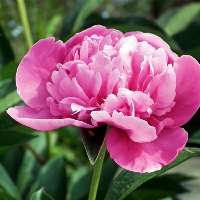When many children mention the "start of school", they always show obvious rejection and resistance. Parents are worried, but they don't know where to start; At this time, it is suggested that parents should always pay attention to their children's psychological conditions, chat with them more, understand and support them more, and believe that their children's psychological resilience will become stronger and stronger, and their reluctance to go to school will also dissipate.
What should I do if I don't want to go to school after school starts
1. Adjust living habits, eat healthy and exercise. Summer life is relatively easy, and many parents have relaxed the management of their children; During the summer vacation, children are addicted to snacks, air conditioners, mobile games, etc., lack of exercise, and their physical resistance tends to decline. It is hoped that parents will focus on home life and community activities during the beginning of school, urge children to adjust their work and rest time, eat healthily, strengthen exercise, and enter the state earlier.
2. Prepare complete school supplies. At the beginning of school, you can take your children to choose learning tools and add some new stationery as gifts for the new semester to make them feel expectant; Make learning plans for children and encourage them to preview the learning content of this semester in advance; If you haven't finished your summer homework, you can help your child communicate with the teacher, make up in the next week or two, and gently teach your child to take a warning.
3. Plan ahead. Parents can discuss with their children the learning and life plan of the next semester, and let them make plans and goals (including some rewards for completing the plan in the semester, short trips, family activities, etc.). When formulating the reward scheme, the process and result of efforts should be taken into account. For example, the goal of reward can be to complete homework seriously every day or to achieve good results in examinations.
4. Psychological preparation. Parents can discuss with their children their attitudes and views towards teachers, classmates and school life, get to know their children in a timely manner, guide them to face difficulties and setbacks in learning and life with a positive attitude and full enthusiasm, and tell them that their parents can help them at any time if necessary.
What are the main factors that children do not want to go to school
1. Social factors. The routines and habits cultivated in the school for a long time, because of the holiday, have no restrictions at home for a long time, which has weakened the influence of teachers and school rules after the school starts.
2. Children's own factors. Personal adaptability is poor. People or things that can't adapt to the campus after school start have less contact with children and greater psychological pressure.
3. School environmental factors. The school teachers are eager to rush into the curriculum content and restore the daily routine and normal class order of the school. Let the child do not know what to do for a while, let the child have a certain resistance.
What are the correct ways of education in the face of children's weariness of learning
1. Lower expectations of children. It is better to tell children to study hard and not to have too much psychological burden. If the homework is not completed, communicate with the teacher in advance and take remedial measures with the teacher's advice.
2. Let children experience the happiness of success in learning. Give children some affirmation and encouragement to establish their self-confidence. Create opportunities, such as asking children to do some math problems or write some English words, give timely praise, and help children find a sense of achievement.
3. Explain the importance of learning to children. You can take your children to their own work place and work for a day, so that they can personally experience the importance of knowledge for work, and then guide them correctly.
4. Standardize the use of children's mobile phones. On the basis of the above treatment, a "gentleman's agreement" is reached with the child on how to use the mobile phone correctly at ordinary times. This must be put to the end, so that the effect is more obvious.

